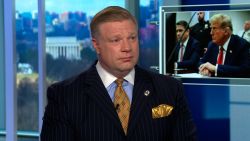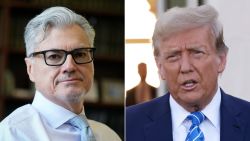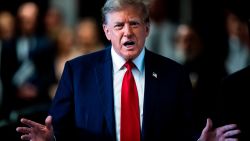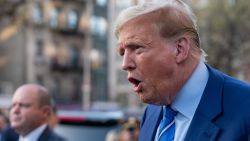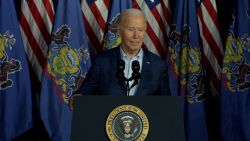On Tuesday morning, Time magazine announced that its “Person of the Year” for 2018 was “The Guardians” – a group of reporters, led by murdered journalist Jamal Khashoggi, seeking truth around the globe in the face of persistent attempts by governments and radical individuals to stifle their coverage and their voices.
Wrote Karl Vick in Time’s piece:
“This ought to be a time when democracy leaps forward, an informed citizenry being essential to self-government. Instead, it’s in retreat. Three decades after the Cold War defeat of a blunt and crude autocracy, a more clever brand takes nourishment from the murk that surrounds us. The old-school despot embraced censorship. The modern despot, finding that more difficult, foments mistrust of credible fact, thrives on the confusion loosed by social media and fashions the illusion of legitimacy from supplicants.”
The Time cover never makes mention of President Donald Trump. Neither does Vick in that description of both the battle and its stakes. But the President looms over the choice as a silent presence – a symbolic stand-in for the “war on truth” that Time sees its “guardians” fighting.
It’s a fascinating choice, and one meant to send a message. Especially when you consider that whatever you may think of the concept of Time’s person of the year (a small group of media elites making a decision about what’s best among us etc., etc.), Donald Trump cares deeply about it.
When Time picked German chancellor Angela Merkel in 2015, Trump tweeted this: “I told you @TIME Magazine would never pick me as person of the year despite being the big favorite They picked person who is ruining Germany.”
When he was named Time’s “Person of the Year” in 2016, Trump gushed: “Thank you to Time Magazine and Financial Times for naming me ‘Person of the Year’ - a great honor!”
A year later, he was back to being upset for not being picked and making excuses: “Time Magazine called to say that I was PROBABLY going to be named ‘Man (Person) of the Year,’ like last year, but I would have to agree to an interview and a major photo shoot. I said probably is no good and took a pass. Thanks anyway!”
Trump cares so much about the “Person of the Year” honor that a fake Time cover of him winning the 2009 award hung in at least five of his properties as of last year. “Donald Trump: The ‘Apprentice’ is a television smash!” read the headline on the cover.
In short: Time magazine’s editors know that Trump watches their Person of the Year pick very closely. And so he knew he was a finalist – the magazine announced 10 contenders on Monday – and would have liked to have received the final rose. I know I am mixing reality TV metaphors, but you get the point
By not only spurning Trump for “Person of the Year” this year, but giving it to persecuted journalists the world over, Time is sending a very clear message: We stand on the side of truth and those who would defend it.
Trump’s record on truth is very clear: he’s not a huge fan. According to The Washington Post’s Fact Checker, Trump said more than 5,000 false or misleading things during his first 601 days in office – a pace of more than eight a day, every day.
He has made the term “fake news” ubiquitous – even if his description doesn’t have to do with news that is actually untrue but rather with news he doesn’t believe is positive enough for him. He has urged his supporters to reject all information that doesn’t come directly from him. “Stick with us,” he told the VFW annual convention earlier this year. “Don’t believe the crap you see from these people, the fake news. … What you’re seeing and what you’re reading is not what’s happening.”
In choosing Khashoggi – and other journalists risking their lives to do their jobs – Time magazine is sending a very clear message to the President: The truth matters. The people fighting to bring the truth to light matter.
The CIA has reportedly concluded that Khashoggi was murdered in the Saudi Arabia consulate in Turkey at the personal instruction of Crown Prince Mohammed bin Salman. Trump has refused to accept that conclusion and, in a remarkable statement about the murder, said this: “Our intelligence agencies continue to assess all information, but it could very well be that the Crown Prince had knowledge of this tragic event – maybe he did and maybe he didn’t!”
Regardless, Trump added, the financial and geopolitical relationship between Saudi Arabia and the United States was simply too valuable to risk over a single murder. “We may never know all of the facts surrounding the murder of Mr. Jamal Khashoggi. In any case, our relationship is with the Kingdom of Saudi Arabia.”
The war on truth won’t be won easily by the side arguing that facts can and still should exist. Misinformation – particularly when it affirms a view you already hold – travels faster and burrows deeper than a hard-to-hear truth. But the fight for facts and for truth is still worth fighting.




